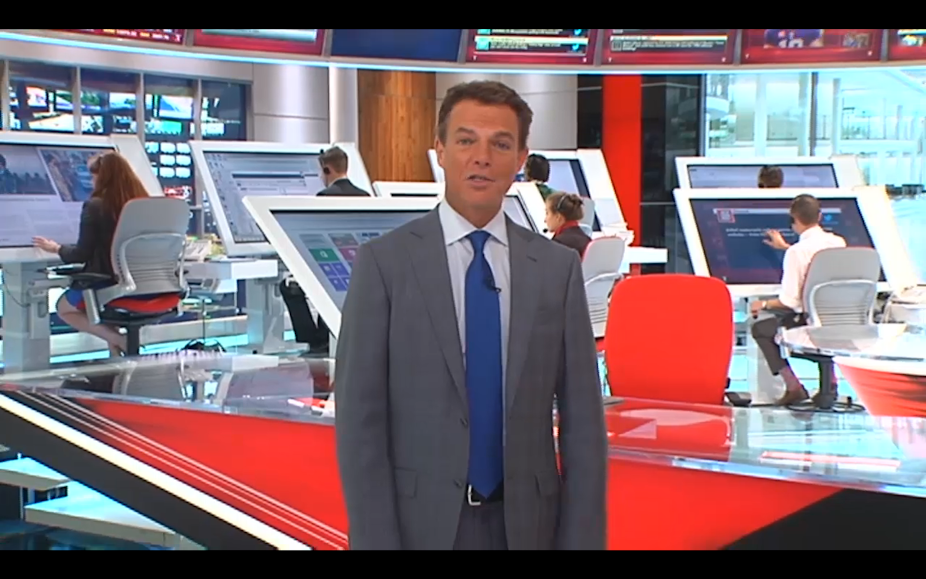In the autumn of 1997, a group assembled from across the BBC and beyond gathered to take part in a seminal moment of broadcasting history: the launch of the BBC’s first 24-hour news channel.
The 24-hour service was a big step for the BBC. It was partly the result of a tacit admission that the corporation had, in effect, failed to anticipate the way that TV news was changing.
In January 1991, as the US and its allies attacked Iraq, the BBC had found itself rebroadcasting CNN’s continuous coverage of Peter Arnett reporting live from Baghdad as the bombs fell. This was news as it happened; news not bound by bulletins. Taking a rival’s output because it has material which you do not is the last word in TV news humiliation. The BBC knew something had to be done.
Fox News has just launched its own innovation. No longer content with running its operations from a newsroom, it now has a “news deck”. The network believes the move to be revolutionary, and, tellingly, taunts its rivals by confidently stating that it won’t be long before other networks seek to replicate it.
At the time of the BBC News 24 launch, round-the-clock news was the big change in broadcast journalism. But the process of change, launch, and re-launch seems to have accelerated more recently in parallel to the increasing presence of technology in our lives.
Broadcasters and other media companies are under pressure to chase the constant developments in hardware and software. Where once a sheaf of paper was the symbol of editorial authority, the tablet computer now reigns.
There was a recent, high-profile, example of that modern malaise on BBC News. Apparently thinking that he had grabbed his tablet computer before delivering a link on set, presenter Simon McCoy appeared live from the studio clutching a ream of paper intended for one of the newsroom printers instead. An honest mistake – or a covert protest calling for a return to the era of paper scripts? Either way, McCoy was not put off.
A true professional, he persevered, gripping the ream firmly as he spoke to camera. The moment may not have gone down in journalism history, but it has had its brief moment of fame on the internet. Perhaps the real point here is that it didn’t matter what McCoy was holding. The replacement of iPad by paper didn’t make the programme fall off air.
One dreads to think of the consequences of a Fox News producer making the same mistake. Trying to lift a packet of paper of the same length and breadth as the “BATs” or “Big Area Touchscreens” in use on the news deck could cause serious injury. Let’s hope the BBC doesn’t follow suit.
For those giant touch-screen computers are the stunning new TV news look which Fox is pioneering. The eye is drawn to them to such an extent that the audience may find themselves wondering, “What are those?” rather than actually watching the news. Yet they should watch in awe. We are now in the age of the “information specialists”.
In Fox’s promotional video, we see one of these “information specialists” being handed a piece of paper by one of her producers. She looks at it briefly in disdain before casting it to one side and turning back to her über-pad to flip some more current affairs around. We are assured that the “BATs” will enable the information specialists to provide viewers with the very latest information from social media and beyond. At any point in a broadcast, the information can be grabbed and displayed on Fox’s 38-foot video wall. It’s fast, it’s big, it’s the latest in rolling news. Do try to keep up.
So why the permanent revolution? For years now, TV News bulletins have been losing audiences. They have actually held up better than some observers predicted a decade or so ago, but it is a reality of the multi-channel environment that the audience is more thinly spread. That is before you even begin to consider the attractions of games and other web content which does not fall into the category of traditional TV at all.
As a TV journalist at the BBC and GMTV, for many years the Breakfast programme on the UK’s main commercial channel, ITV, I strove to compile reports, write headlines, and invite guests that would stand out. Now, as a journalism lecturer, I constantly explain to my students that distinctiveness is more important than ever. Your audience has an ever-growing number of alternatives.
This need for novelty will inevitably involve, from time to time, change for the sake of change, and style’s triumph over content. Fox’s trick on this occasion has been to stand out, and get talked about - even at the risk of amusing some of those they intended to impress.

